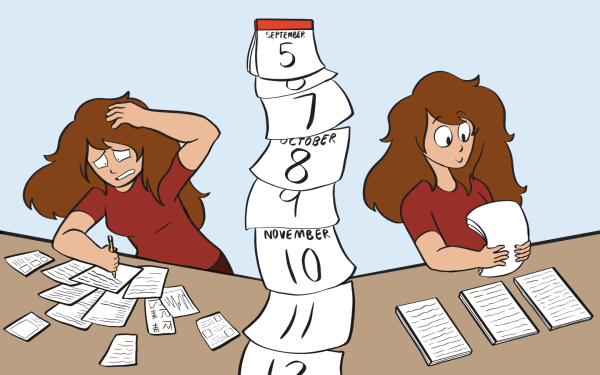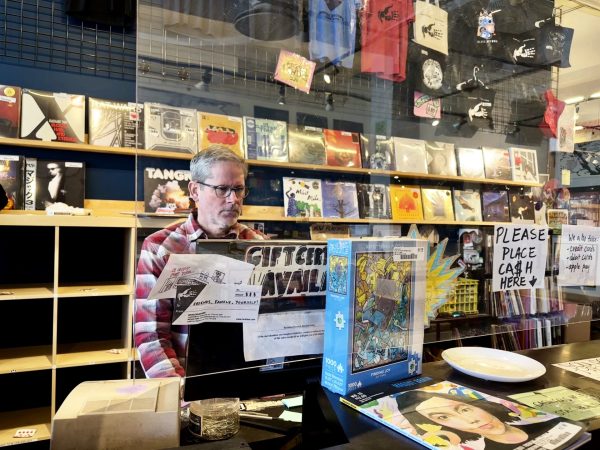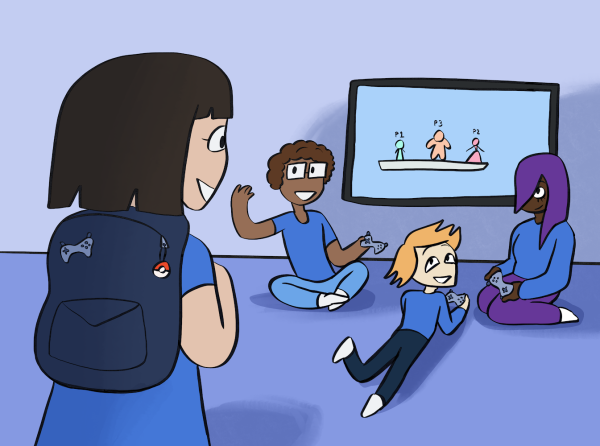OPINION: Climate change is alarming but we shouldn’t shoot the messenger
After the unveiling of the “Climate Clock” exhibit in New York City on Sept. 19, some took to social media to share claims of its mis-blaming of everyday people and alarmist nature. This claim perpetuates dismissive attitudes towards climate change and is mis-blaming in and of itself. Climate activists should not be shot down for their honest and urgent warnings for our future. Instead, we need to work together to take productive steps towards addressing the severity of climate change.
In giant red numbers, the “Climate Clock” counts down the years, days, hours, minutes and seconds until Earth reaches its doomsday.
Simply looking at a countdown shown in giant red numbers is nerve-inducing, but to then realize these numbers are counting down until the point of no return is frightening. However, this is our reality, no matter how it makes us feel.
“We are confronting a tragically nonlinear future,” said DePaul professor Liam Heneghan. “Without a radical rethinking of our economic relationship with the non-human world, ‘smashing capitalism,’ many people, firstly poorer and less privileged people, face a grim and deadly future. This is not a time for comforting thinking.”
While the implications of climate change aren’t comforting to think about, the scientists, activists and scholars who want to spread awareness of this dire emergency should not be the ones taking criticism. The people in charge who are not willing to take action are the ones we need to be directing our alarmed energy towards.
No matter how seriously scientists express their evidence and knowledge of climate change, some people are still not willing to change their behavior, including leaders of our own country.
The United States is no longer part of the Paris Climate Accord, our president has rolled back countless environmental protection policies, and the country continues to use fossil fuels as a main source of energy.
We are in a climate emergency, yet many people, most importantly people in power, are not treating it as such and are more than willing to exploit our natural resources. People in power don’t want or feel the need to change.
“When there is this asymmetry in costs and benefits, our behaviors don’t change,” said. Paul J. Ferraro, a professor at Johns Hopkins University. “A lack of knowledge is not typically the problem. The problem is a lack of incentives.”
The small number of powerful people, which includes President Trump, benefiting from the denial of climate change will be the last to make an effort to right the wrongs of global warming. When people aren’t affected, they are less willing to change.
Claiming that climate activism is misdirected is not productive. It’s now widely acknowledged that big businesses who contribute to most of the world’s pollution are to blame, but we will not get anywhere if we tear down activists who are trying to spread awareness.
While fighting for climate change can be daunting, there are ways to overcome. When Alex Garner, an environmental studies and political science student at Marquette University, feels overwhelmed, she “[tries] to assure [herself] that there are other people fighting for the same cause.” Garner also has suggestions on being an advocate for climate change.
“Educate yourself on the issues, stay up to date with environmental news, and talk to others. Try to make changes in your own life, get involved in some way with environmental organizations, and vote,” she said.
“In American culture, the environment and natural resources are largely seen as economic commodities, rather than elements of sustaining life and holding intrinsic value. We need to change the way we view and interact with the environment, and I think that can come from education, conversations, and engagement with others,” she added.
The problem is not that exhibits like the “Climate Clock” are alarmist or misdirected — it’s that some are so quick to shoot the messenger and not address the real problem. Let’s not blame global warming on concerned activists who want to see their children grow old enough to graduate from high school.
It, in fact, should be alarming that the world is on fire and we have a little over seven years to fix the mess. To do so, we need to start taking productive and, most importantly, unified steps.
By redirecting our fear, anger, and sadness towards voting for people who believe in science, re-evaluating how we view our environment, educating ourselves and having conversations with others, we can all become climate change activists. It’s no small feat, but it’s our only hope.












